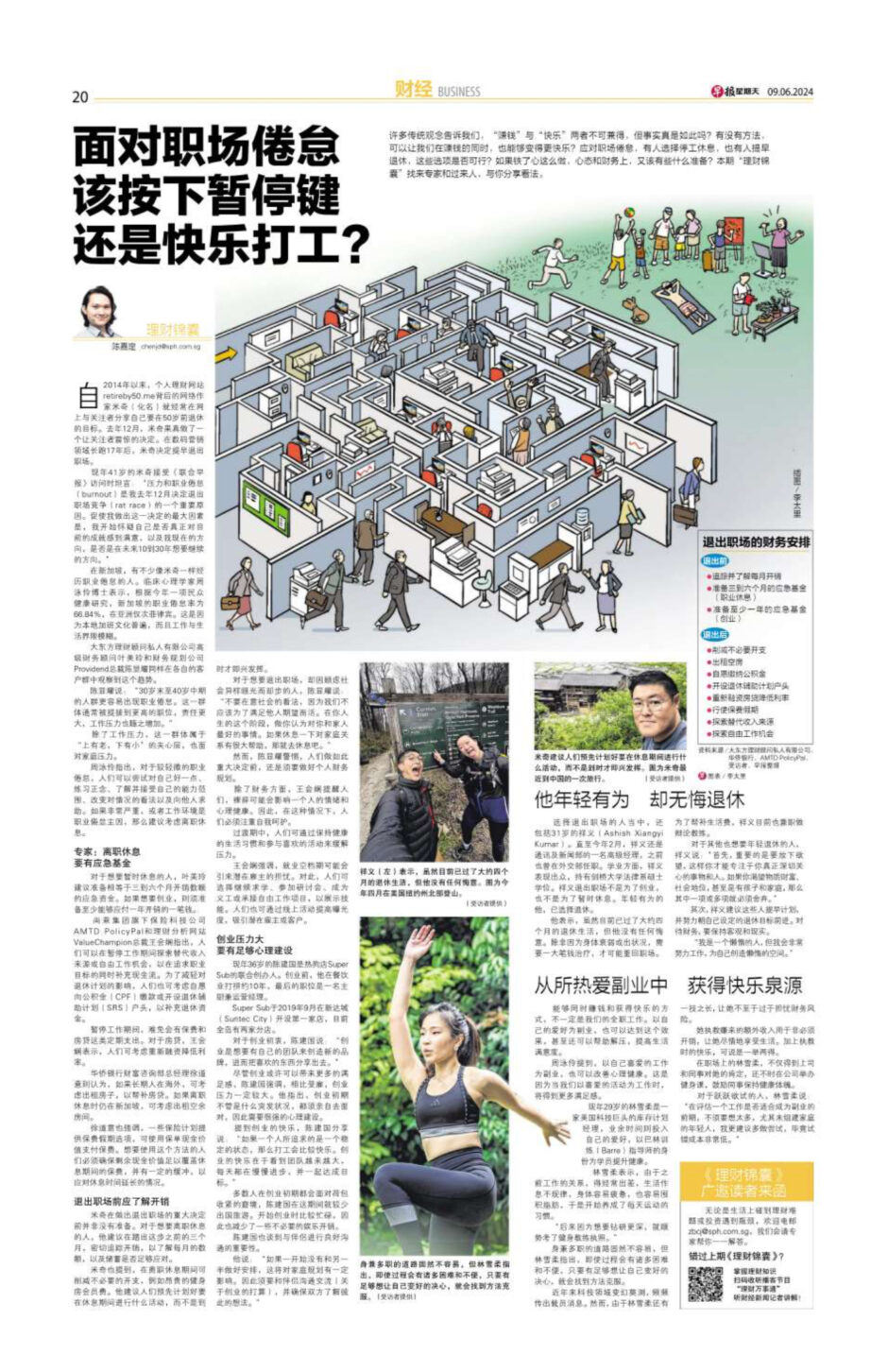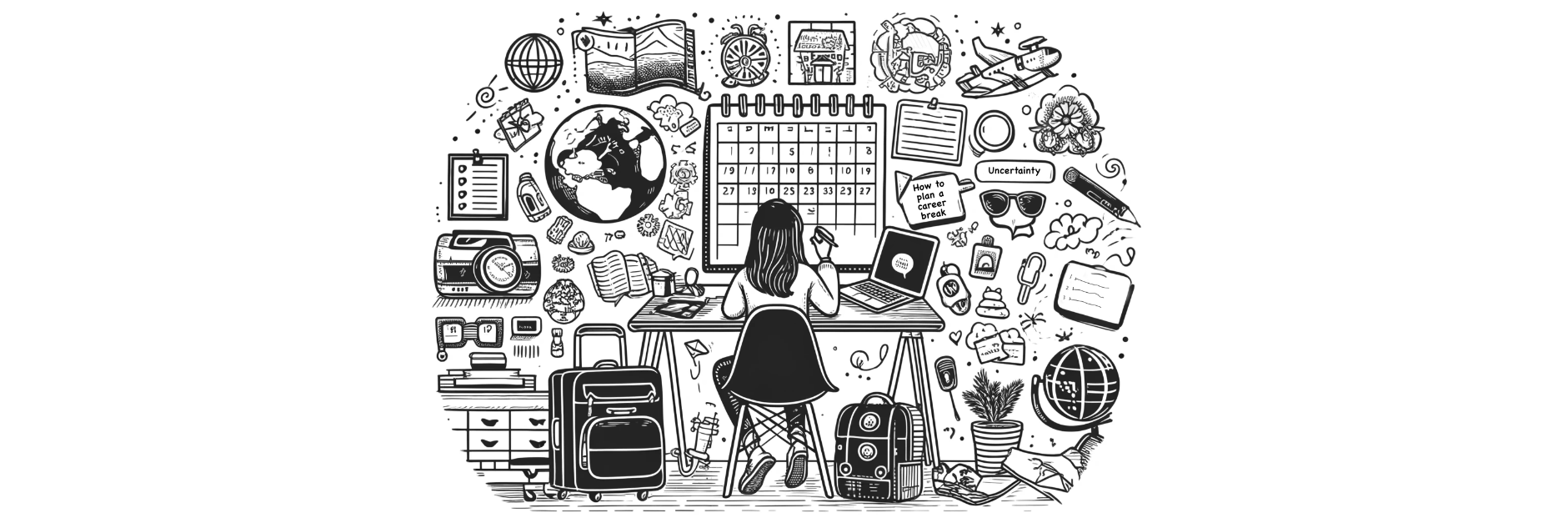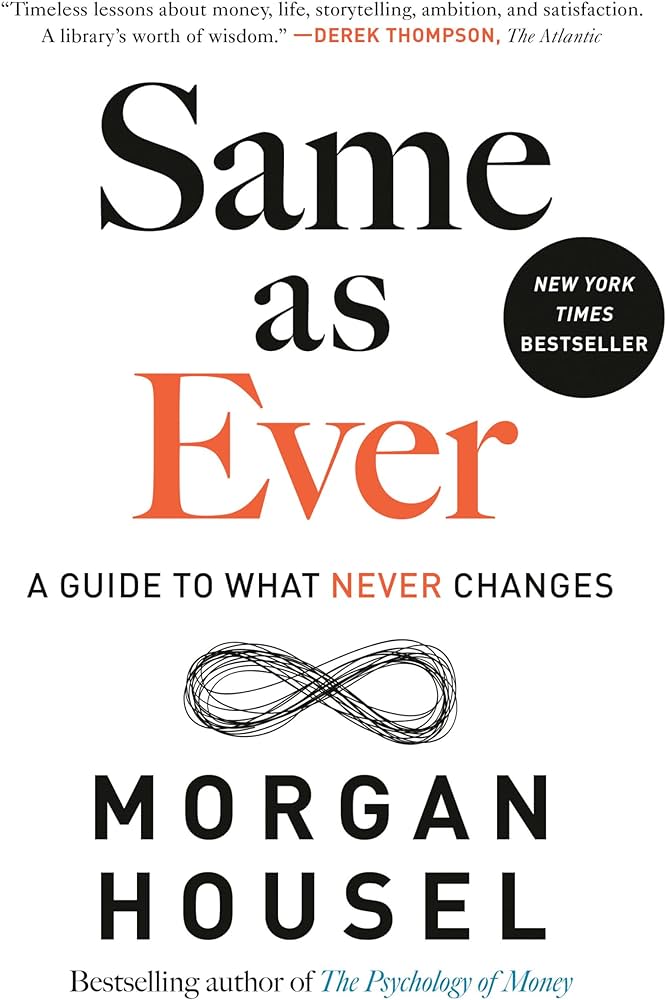No. 1 Reason Stopping You from Taking a Career Break
After returning from a month-long trip from China, my morning routines have returned to the norm–going for morning walks followed by a 1-hour breakfasts and spending some time reading a book. I probably read more books this year, compared to the 2 years combined (and that’s not many books). These books offered me fresh perspectives and insights on life and work.

Thank you for your support
Last week, I was interviewed by a journalist about taking a career break. That interview led to being featured in an article in last Sunday’s issue of Zaobao to share my experience and opinion on taking a career break from a financial perspective.
That wouldn’t have happened without the support from readers like you who are allowing my voice to be heard and motivate me to continue writing about my journey. Thank you.
I will weave in the recommendations I shared in the news article into this article and elaborate how they helped me when I was planning to take a career break.
Last week, I have been reading the book, “Same as Ever” by Morgan Housel who is also the author of the popular book, “The Psychology of Money”.
“Same as Ever” is a simple read because each chapter makes use of storytelling to convey key messages. The messages that Morgan Housel shared in his book made me reflect on why so many of us are hesitant to take career breaks despite the potential benefits. At the same time, I also think back about the things I have done that allowed me to confidently make the unconventional decision to take a career break in my 40s.
In this article, I will explore why uncertainty is the number 1 reason why many people were not able to make the move to take a career break, even if they wanted to. I will also list the steps I took that helped me to overcome this.
Every week, I’ll be sharing practical tips and invaluable knowledge to guide you on your path to financial independence.
Uncertainty is No. 1 Reason Stopping You from Taking a Career Break
Uncertainty is an uncomfortable feeling for most of us. It represents the unknown, a space where our control is limited, and outcomes are unpredictable. This fear of uncertainty can significantly affect our decision-making processes. Rather than making decisions based on what might be the best course of action, we often choose paths that provide a sense of certainty, even if they are not the most beneficial.
Psychologically, we crave certainty because it provides a sense of safety and stability. It’s a basic human need to feel secure in our environment, and when faced with uncertainty, our natural response is to seek out ways to regain that sense of control.
How Uncertainty Stops Us from Taking Career Breaks
In “Same as Ever,” Housel believes that people do not want accuracy. They want certainty. He thinks that a common trait of human behaviour is the burning desire for certainty despite living in an uncertain and probabilistic world.
For example, if I tell you that there’s a 60% probability that you will be able to find a suitable job after you have decided to end your career break, you are most likely still going to struggle with the decision to take a career break. Even if I were to bump the probability up to 80%, the struggle will not go away.
A friend of mine mentioned that he will take a career break right away, if his employer were to sign a contract that guarantees that he will be employed whenever he is done with his career break. That’s the level of certainty that he needs to have.
Uncertainty Creates Unhappiness
The hesitation to take a career break is a prime example of how uncertainty affects our decisions. Many people worry about the unknown consequences of stepping away from their careers. They fear missing out on promotions, losing their competitive edge, or being unable to re-enter the workforce at the same level.
The same fear causes us to often insist on pushing ourselves to find the top, only to realise, sometimes too late, that we’ve gone too far. The result can be burnout, stress, and frustration, leaving us with few options when we’re already at the bottom.
The cycle of greed and fear further perpetuates the fear of uncertainty. When things are going well, we assume good news is permanent and ignore potential risks, until it’s too late. Conversely, when faced with bad news, we panic and assume it will last forever, becoming oblivious to potential positive changes, until the gains are already realised.
This cycle impacts our career decisions as well, making us reluctant to take breaks when things are going well for fear of disrupting the good times, and equally reluctant when things are bad, fearing further decline.
The Psychological Appeal of Certainty
As mentioned earlier, certainty impacts our overall happiness and peace of mind. Psychological and behavioural economic studies show that people are often willing to pay a premium for certainty because it alleviates anxiety and provides a stable outlook for the future. This is the same across our everyday life.
Let’s take making financial decisions for example. I shared with my friends that they should buy term insurance to enjoy the lowest cost of protecting yourself from possible risks and invest in broad-based index ETFs to build a diversified portfolio to potentially generate capital gains in the long run. Despite years of sharing, none of them have taken action on it even though they may be able to retire more comfortably in their later years.
But when one of my friends spoke to an insurance agent, he bought an Investment-Linked Policy (ILP) from the agent within 2 weeks. What got him to take action?
The ILP product is able to give him certainty that he will receive a fixed amount each year if he chooses a particular dividend fund for his portfolio. In a broader sense, the certainty of a fixed return (even if it’s a low amount) provided him a form of security which makes him feel more at ease. That made the decision-making faster and easier. Even if it is an inferior product.
How Do We Overcome Uncertainty?
If you want to take a career break, how do you better manage and embrace uncertainty to help you make that happen? Here are some recommendations, some of which I shared with the journalist from Zaobao for the article, and how these recommendations helped me plan my career break and eventually take that big leap.
Accepting Uncertainty as a Norm
We need to recognise that uncertainty is a part of life and that it’s impossible to plan for every eventuality. By recognising uncertainty does not mean that we are accepting our fate. Instead, this acceptance can help us reduce anxiety and improve decision-making without letting uncertainty control our fate. If you find it difficult to do this on your own, it’ll be good to reach out to your friends and family or seek professional help.
Plan Your Career Break
Taking a career break can be a transformative experience, but its success often hinges on thoughtful planning rather than simply winging it. By setting clear goals and intentions, you can make the most of your time off, whether it’s learning a new skill, traveling, volunteering, or working on a passion project. Without a plan, an extended period of idle time can lead to boredom and aimlessness, diminishing the potential benefits of your break.
As a typical Singaporean, it’s impossible for me to idle my time away during my career break. Even during my career break, I know that I will still desire to stay productive. In order to have a meaningful career break, I visualised how I wanted to spend my day with the surplus time on my hands and wrote down the activities I wanted to do. While I didn’t manage to accomplish all of them, I am still glad that I had a plan to start my career break with.
Understand How Much You Are Spending Today
A common fear that is holding us back from taking a career break is that we worry about not having enough savings to pay for our expenses when we embark on our career break. Spend time tracking your expenses for at least 3 months to understand how much you need to maintain your current lifestyle. With this data, do the math to forecast how long your savings can last you during your career break.
Having tracked my expenses for the past 10 years helped me understand how much I am spending, how much of my expenses are actually attributed to lifestyle creep and how much I really needed to enjoy a “good enough” lifestyle.
Build a Financial Cushion to Cover a Zero Income Lifestyle
Before taking a career break, I saved diligently to ensure I had enough to cover 12 months of my living expenses. It’s an excessive amount for a career break but it gives me the emotional security that I needed to take a career break.
I recommend that you should aim for at least 3-6 months of expenses saved up before considering to take a career break. Having 3 months of living expenses saved allows you to take a short career break while 6 months of expenses saved is good for a longer one. If you intend to start a new business, I suggest you have at least 12 months of expensives saved to tide you through the rough waves of entrepreurship.
Optimise Your Expenses to Spend Within Your Means
Examine each expense item in your monthly expense to identify areas where your expenses could be optimised to reduce your monthly expenses. A lower monthly living expense will allow your savings to sustain your career break longer. After tracking your expenses, what are the expense items that you think you could reduce or eliminate?
When I was planning to take my career break, I made plans to terminate my expensive gym membership that costs $180 each month. At the same time, I also re-negotiated my Singnet Broadband subscription to reduce my monthly utilities. I also learnt to make use of lifestyle amenities around the neighbourhood which drastically reduced my transportation expenses since everything was simply within walking distance.
Be Like Water, Be Adaptable and Resilient
Adaptability and resilience are 2 key characteristics that will help you manage uncertainties when taking a career break. What are you doing to do if you run out of money before you end your career break? What if it is going to take me longer than expected to find a suitable job?
Being adaptable and resilient means being able to “roll with the punches” and go with the flow when things change during our career break. For example, I suffered from money anxieties in the first 2 months of my career break because this is the first time in my adult life where I had no income coming in while I continue to have outgoing expenses.
I adapted to these anxieties by being more prudent with my spendings, opting to having home-cooked food more often instead of eating out (it helped that I enjoy cooking). I also chose to picked up flexible remote work (more on that in a future article) that weren’t related to my career that helped to pay for some of my monthly expenses, relieving some burden on my savings.
Conclusion
Our desire for certainty is a powerful force that shapes many of our decisions. By understanding uncertainty is everywhere and finding ways to manage it, we can make more informed and balanced decisions. Embracing uncertainty doesn’t mean recklessly diving into the unknown, but rather preparing for it and finding a balance that allows us to thrive both personally and professionally.



Hi Mickey,
Thanks for sharing the career break journey.
Yeah, I can see how anxiety it is when there is no income but with outgoing expense. How do you manage to pass through it?
Would you also able to share how long do you plan for career break? Will it affect your retirement by 50?
That’s a good question. Something happened in the family so I’m trying to resolve the crisis. But this crisis also means that I may end my career break earlier than I would like to.